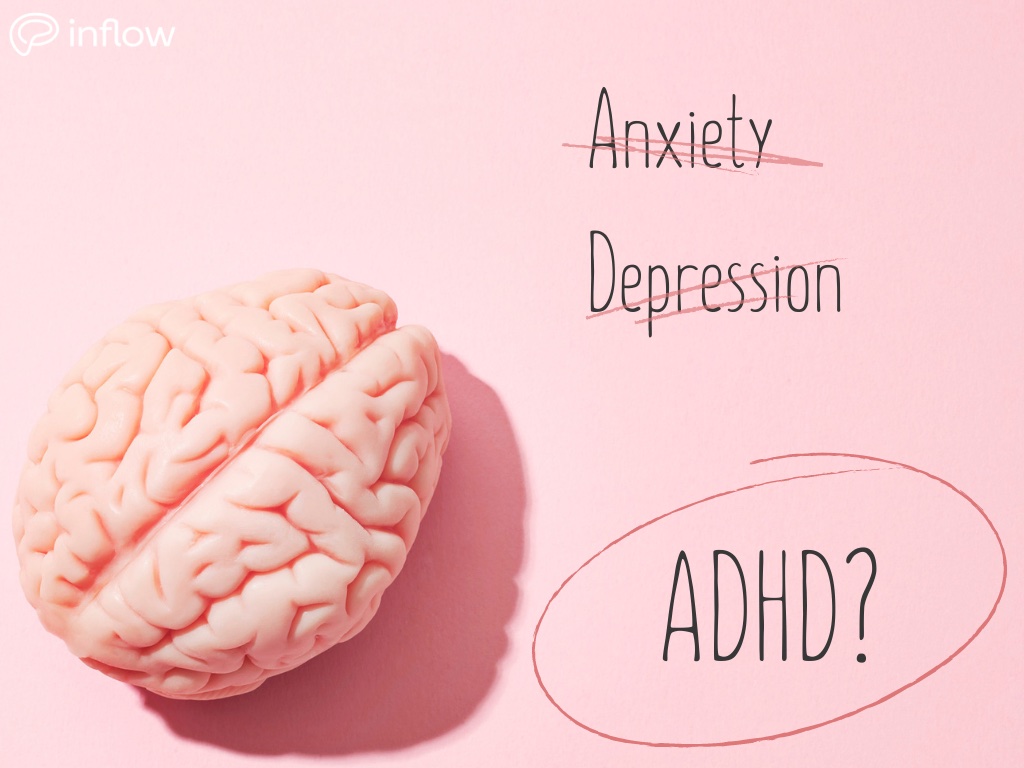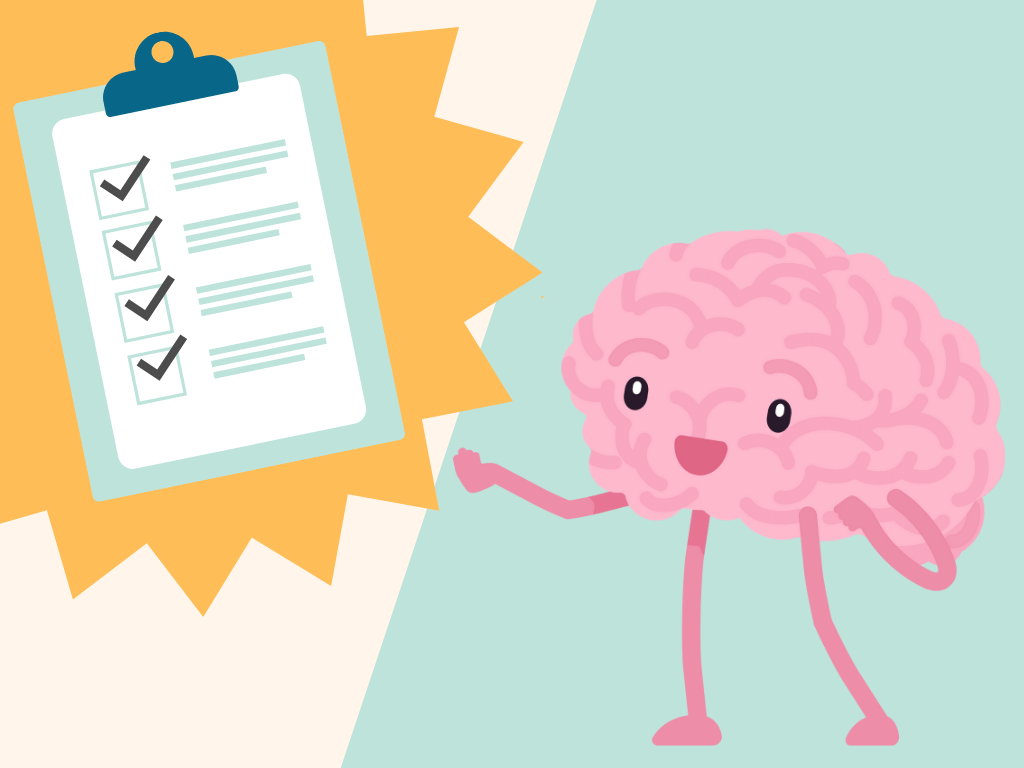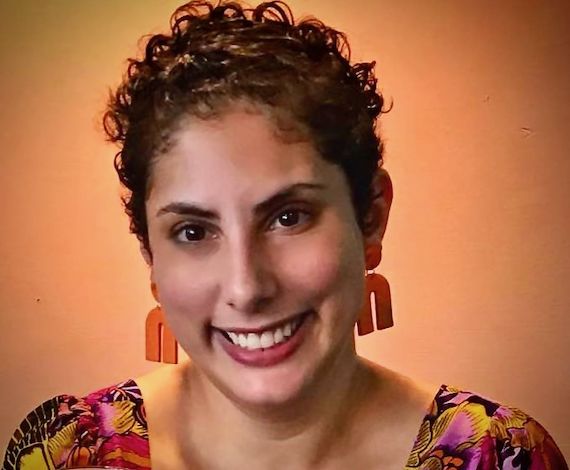Disclaimer: While this article discusses misdiagnoses for anxiety, depression, and other conditions, it should be noted that the mental health conditions discussed can co-occur with ADHD. This article is not intended to be a substitute for professional medical advice, diagnosis, or treatment. Please contact your healthcare provider if you have questions or concerns regarding your medical and diagnostic history.
Overlooked and misdiagnosed in childhood: Callie's story
I have a very clear memory of my first visit to a child psychiatrist.
I was 8-years-old, struggling to make friends, didn't want to go to school most days, and had low self-esteem. I remember being instructed to play with dolls at my visit, and I had the distinct impression that I was somehow being tricked. I wondered why the doctor didn’t just talk to me directly. I would've been happy to answer her questions; to talk to someone about what I was dealing with.
I listened while my mother described my troubles to her: social dysfunction, emotional dysregulation, and a "horrifically messy bedroom". I left that single visit with a diagnosis of clinical depression and a prescription for Prozac. My worried mother would give me a pill every morning with my oatmeal. They told me it would take a few weeks to feel better, but "better" didn’t come.
Looking in the wrong places
I spent the next several years seeing doctor after doctor, each categorizing my most apparent symptoms (low self-esteem; impulsive behaviors like overeating; failure to perform tasks like cleaning and homework; general bad feelings about school, home, and my social life) as some flavor of depression, sometimes with a splash of anxiety.
I tried every antidepressant on the market, often for years with little to no result, which eventually led to a diagnosis of "treatment-resistant depression". So, because I already had a history of depression and anxiety, I kept getting diagnosed with some form of depression and anxiety.
It was the worst kind of vicious cycle. It took more than a decade of seeking treatment before I finally saw a clinician who recognized that my depression and anxiety were actually symptoms of something else - ADHD.
Misdiagnoses are common among ADHDers
Unfortunately, I'm not alone in my experience. According to Dr. Len Adler, a leading ADHD researcher and professor at New York University, as many as 75% of adults with ADHD have no idea they have the condition. Without a proper diagnosis, we don't have access to intervention, treatment, and support.
The negative effects of misdiagnosis
Undiagnosed ADHD alone can cause low self-esteem and severely impair our chances at success.
A misdiagnosis on top of untreated ADHD only compounds these issues. Additionally, many people can attest to the worsening of ADHD symptoms after a misdiagnosis, and you may be one of them. This comes as no surprise after receiving unhelpful prescriptions from medical professionals that don't fully understand how our brains work.
Commonly misdiagnosed conditions
Women, gender non-conforming people, and those who were AFAB (assigned female at birth) are statistically more likely to be misdiagnosed when struggling with ADHD, most commonly with depression. Other common misdiagnoses include:
- Generalized Anxiety Disorder (GAD)
- Bipolar Disorder
- Borderline Personality Disorder (BPD)
Even among medical and psychiatric professionals, ADHD is often thought of as a “boys’ disorder,” characterized by hyperactivity and behavioral issues.
Those of us with different presentations of ADHD tend to fall through the cracks. We are overlooked by doctors most of our lives. Symptoms like moodiness, social anxiety, and brain fog can be read as evidence of other psychological disorders, which leads to one or more misdiagnoses.
Trust your gut
Before my official ADHD diagnosis, I remember telling doctors, “I feel like my depression and anxiety are rational; like they're being caused by something else. I’m depressed because I’m failing school. I’m anxious because I keep missing deadlines.” In response, the doctors reasoned that by treating the depression and anxiety, my executive functioning would somehow magically improve.
Looking back, I have to laugh. They had it so completely backwards.
And then of course, years later, I found that treating my ADHD symptoms at their core prevented almost all of the issues that caused my depression and anxiety symptoms.
Who knew!? (Besides me.)
Finally getting the right diagnosis...
When I was finally diagnosed with ADHD, I experienced a rush of complicated emotions. Initially, I felt a wave of joy and relief. So much of my life and the challenges I'd experienced suddenly made sense. I was reassured to know that my experience was common and treatable. On the other hand, I went through a period of grief. I felt like years of my life had been lost to misdiagnosis. I found myself wondering what my life would've been like if I’d had the support I've needed since childhood.
Would I have been more successful in school? Would I have had healthier relationships? Maybe I wouldn’t have felt so down on myself, or been so self-critical.
What I have learned is that these emotions are an incredibly common experience for people with ADHD who were previously misdiagnosed. It’s an incredibly frustrating feeling to know that you did everything “right” by seeking help and support, but things still didn’t go your way.
If you're experiencing this type of post-diagnosis grief, please know that you are not alone. It’s okay to feel sad, angry, and frustrated that you didn’t get the help you needed sooner. It is okay to grieve the idea of how things might have been different or how you wish your life had gone.
Moving forward with an ADHD diagnosis
Since receiving my ADHD diagnosis, my life makes a lot more sense. I'm able to look at my challenges with a clearer understanding of how my mind operates, and I'm better equipped to help myself succeed. I've learned how to advocate for myself so that I can receive appropriate support at work and school.
Some days, I still feel a pang of grief for the years I lost to misdiagnosis, but the important thing to remember is that I am on the right track now.
We can’t change the past, but with the right tools and information, we can build a better, healthier future.








